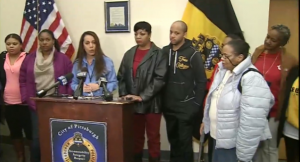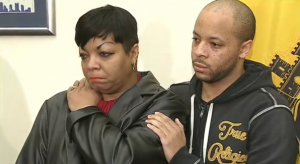The 2017 General Election brought historic wins for LGBTQ candidates across Pennsylvania. Over a dozen out candidates were successfully elected or re-elected for local office.
Tyler Titus won his election for Erie City School Board – making him the first out trans elected official in Pennsylvania history.
Luis Medina won his election for Lewisburg Borough Council – making him the first known out public official in Union County, and first known out Latinx public official in Pennsylvania. (Luis is a co-founder of the Pennsylvania Youth Congress.)
Mark Barbee won his election for Mayor of Bridgeport, in Montgomery County – as he continues his service in being the first known out Black public official in Pennsylvania. He just completed his first term on the Bridgeport Borough Council.
We are proud to share the news of out Pennsylvanians and several parents of LGBTQ young people who have won their elections.
These wins would not have been possible without the trailblazers who ran before them. Rep. Mike Fleck from Huntingdon County, our first openly gay state legislator, lost re-election in 2014 after he came out. Out lesbian Fern Kaufman from Chester County ran for a state representative seat in 2010. Out gay candidate Eric Gutshall for Dauphin County Controller in 2015. There have been many candidates for township, borough, city, and county governments who tried but did not prevail throughout Pennsylvania. They paved the way for the general public to accept LGBTQ people as public servants, ultimately making wins like this possible.
With 2,562 municipalities across the commonwealth, it is practically impossible to monitor every elected official in Pennsylvania. It is also practically impossible to assess the ‘outness’ of many individuals, some of whom may share their identities with close community circles but not with local media. We have decided to only list here who is ‘out’ in terms of their identities being public and widely known. For this reason, we generally use the phrase “first known out” person in a given context unless there is certainty otherwise. You are welcome to email us information on a publicly out elected who was not widely known before – and we’ll update our records! Photos and information noted below are from the public websites or social media of the candidates.
This election was historic across the nation. In Virginia, Danica Roem has become the first out trans state legislator elected in the nation. Andrea Jenkins will be joining Minneapolis City Council and become the first out black trans person elected to public office in the United States. Seattle elected Jenny Durkan, an out lesbian, as its new mayor. Lisa Middleton will be joining Palm Springs City Council and become the first out trans person elected to a non-judicial office in California. These wins are possible because of leaders like Harvey Milk from San Francisco, Kim Coco Iwamoto from Hawaii, and Ed Flanagan from Vermont.
 |
Lori Schreiber Commissioner Schreiber has been re-elected to a fourth term on the Abington Township Board of Commissioners. Abington is among the largest townships in Pennsylvania, located in eastern Montgomery County and bordering Philadelphia. Commissioner Schreiber’s leadership was instrumental in Abington’s adoption of a local non-discrimination ordinance in 2012. She lives in Roslyn with her partner, Linda. |
|
|
|
 |
Mark Barbee Mayor-elect Barbee will become the first known out Black Mayor in Pennsylvania history. Barbee, 28, has just completed his first term on Bridgeport Borough Council. Bridgeport is located in central Montgomery County, bordering Norristown and outside of Philadelphia. |
|
|
|
 |
Ron Strouse Mayor Strouse was re-elected and will now serve a second term. Doylestown is the County Seat of Bucks County. |
|
|
|
 |
Tyler Titus School Board member-elect Titus has become the first out trans elected official in Pennsylvania history. Titus, 33, is a therapist in Erie and father of two young children. |
|
|
|
 |
Glenn Paul Wascovich Mayor-elect Wascovich is among the first out elected officials in York County. Wascovich lives in Hallam with his husband, Michael – who currently serves on Hallam Borough Council. Hallam is located in a rural area near the Susquehanna River, between the cities of York and Lancaster. |
|
|
|
 |
Ben Allatt Harrisburg City Council City Councilmember Allatt was re-elected to a second term. Allat lives in Harrisburg with his husband, Stephen. Harrisburg is our state capital, located in south central Pennsylvania. |
|
|
|
 |
Dan Miller Harrisburg City Treasurer Treasurer Miller was elected to his first full term in the position. Miller was appointed Treasurer by Harrisburg City Council to fill a vacancy in June 2016. He is also a former Harrisburg City Controller. Miller lives in Harrisburg with his husband, Carl. Harrisburg is our state capital, located in south central Pennsylvania. |
|
|
|
 |
Amy Zanelli Lehigh County Commission Commissioner-elect Zanelli will become the first known out County Commissioner in Pennsylvania history. Zanelli lives in central Lehigh County with her wife and three daughters. She will be the first out member of the Lehigh County Commission. Lehigh County is located in eastern Pennsylvania between Scranton and Philadelphia. |
|
|
|
 |
Matthew Fetick Kennett Square Mayor Mayor Fetick was re-elected to a third term. He is an out gay man and supported the local non-discrimination ordinance that was adopted by Borough Council earlier this year. Kennett Square is located in southern Chester County, about an hour drive west of Philadelphia. |
|
|
|
 |
Luis Medina Lewisburg Borough Council Councilmember-elect Luis Medina will become the first out local government official in Lewisburg – and the first known out Latinx public official in Pennsylvania. Medina, 29, is a counselor who received his undergraduate and masters degrees from the Bloomsburg University of Pennsylvania. While a student leader at Bloom, he became a co-founder of the Pennsylvania Youth Congress. Lewisburg is the county seat of Union County, located along the Susquehanna River. |
|
|
|
 |
LeRoy Stearns Meadville Mayor Mayor Stearns was elected for his first full term as Meadville Mayor. He was appointed as Mayor by Meadville City Council to complete the term of Christopher Soff in January 2015. Mayor Stearns had served on Meadville City Council from 1998 to 2015. Meadville is the county seat of Crawford County, located in rural northwestern Pennsylvania. |
|
|
|
 |
Sean Strub Milford Mayor Mayor Strub was elected for his first full term as Milford Mayor. He was appointed as Mayor by Milford Borough Council to complete the term of Bo Fean in May 2016. Mayor Strub is the Director of The Sero Project, a national organization comprised of individuals living with HIV who combat stigma and injustice, and is the founder of POZ Magazine. Before moving to Pike County in 1997, he ran for a seat in the United States House of Representatives in New York, becoming the first person to run for federal office who was openly HIV+. Mayor Strub lives in the borough with his partner, Xavier. Milford is the county seat of Pike County, located in northeastern Pennsylvania near the borders of New Jersey and New York. |
|
|
|
 |
Chris Dietz Millersburg Borough Council President Dietz was re-elected to a third full term. Dietz lives in Millersburg with his husband, Alex. Millersburg Borough is located in a rural region of northern Dauphin County along the Susquehanna River. |
|
|
|
|
Dan Murphy Murphy won his election for a seat on the State College Borough Council, becoming the first out member of the council. State College Borough is located in direct center of Pennsylvania, in the heart of Centre County. |
|
|
|
|
  |
Josie Byzek and Jesse Gantt Susquehanna Township School Board School board members-elect Byzek and Gantt won their seats on the Susquehanna Township School Board. Byzek is a mother who lives in the township with her wife. Gantt lives in the township with his husband, Kevin, and son. This is the first known time that two out elected officials will serve on the same local legislative body at the same time. |
|
|
|
 |
Eric Elvanian Upper Merion School Board School Board member Elvanian won re-election to a second term to the Upper Merion School Board. Elvanian lives in King of Prussia with his husband. |
|
|
|
 |
Gregory Lynch West Conshohocken Mayor Mayor-elect Lynch will become the first out mayor of West Conshohocken. Lynch is a husband and father who has lived in the borough for over 13 years. For the past six years he has been a member of the West Conshohocken Borough Council, winning a special election in 2012. He has been Vice-President of Borough Council for the past four years. West Conshohocken is a small community located along the Schuylkill River in central Montgomery County, outside of Philadelphia. |
|
|
|
Several parents of young LGBTQ people also won their elections!
 |
Alisa Bowman East Penn School Board School board member-elect Bowman won her election to become an East Penn School Board member. She lives with her family in Emmaus, outside of Allentown in Lehigh County. Her son is Ari Bowman, who is a 13 year-old trans boy who rose to international fame when he spoke out for trans inclusion before his school board in 2016. His mother will now sit on that very school board. (Alisa and Ari have both spoken with PYC in the State Capitol for our annual Pennsylvania Comes Out for Freedom event in 2016.) |
|
|
|
 |
Kathy Dahlkemper Erie County Executive County Executive Dahlkemper won re-election to a second term. As the mother of an openly gay son, Dahlkemper has used her civic platforms, previously as a US Representative and currently as County Executive, to take action supporting LGBTQ equality. |
This is a live post and will be updated as new information comes in about the 2017 General Election

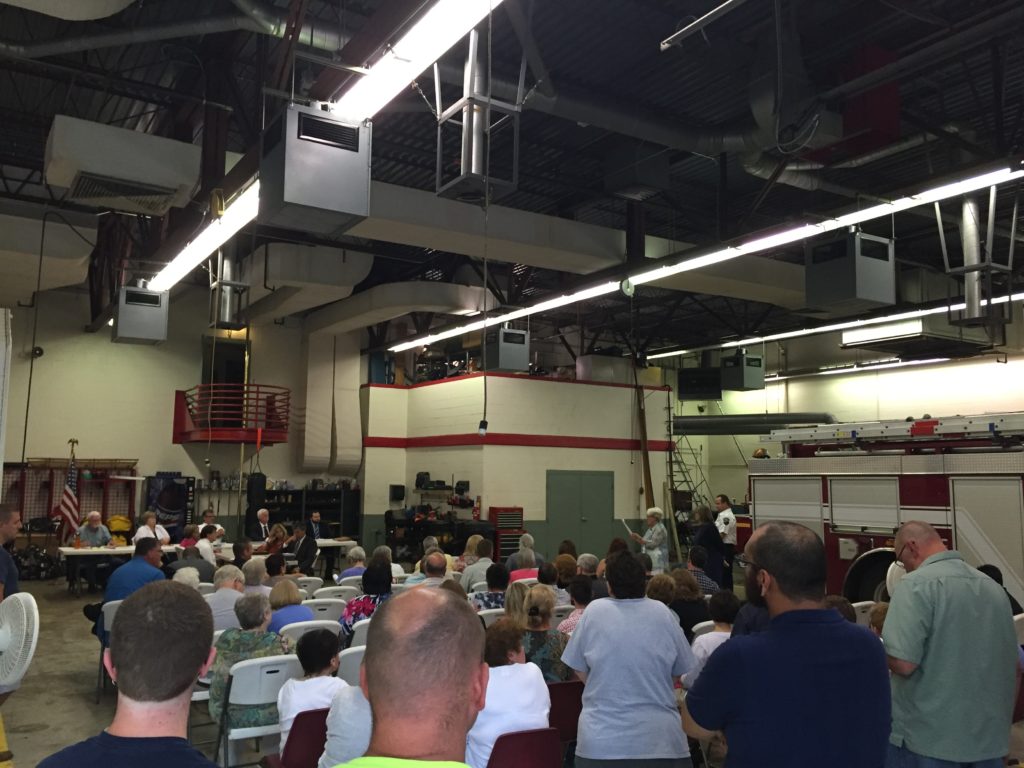 In the wake of the Orlando massacre and the continued stalling of statewide non-discrimination legislation, local governments have renewed their efforts to support LGBT-inclusive non-discrimination ordinances.
In the wake of the Orlando massacre and the continued stalling of statewide non-discrimination legislation, local governments have renewed their efforts to support LGBT-inclusive non-discrimination ordinances.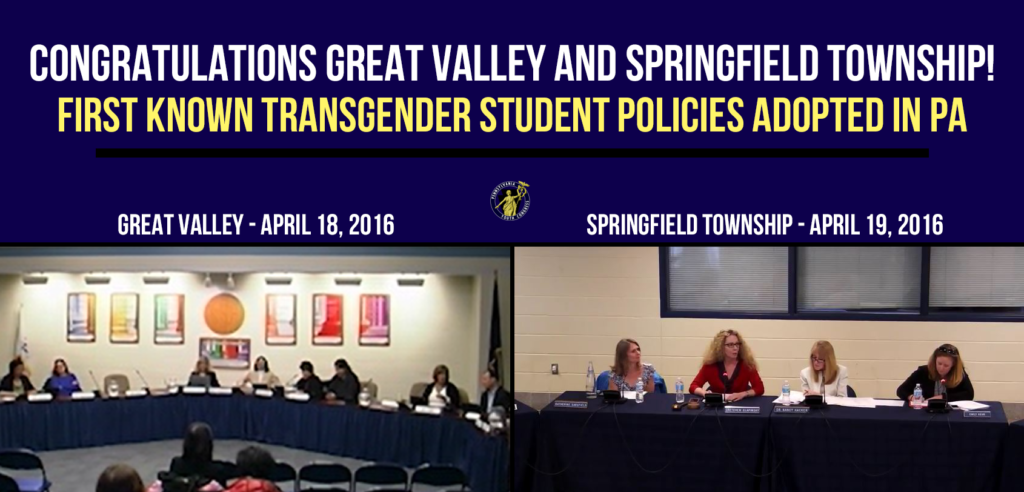
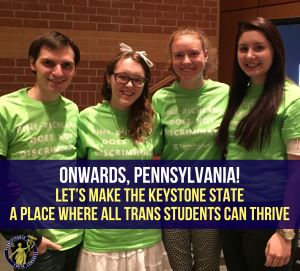 However, steps backward are being considered by a few school districts. On Monday evening, another three-hour school board meeting took place in the Pine-Richland School District in Allegheny County. While transgender students have been supported by the administration in practice, a network of parents has come together to try and strip away the basic accommodations that have been made for them. An informational meeting on transgender youth will take place in Pine-Richland on Thursday. In addition to the Pennsylvania Youth Congress,
However, steps backward are being considered by a few school districts. On Monday evening, another three-hour school board meeting took place in the Pine-Richland School District in Allegheny County. While transgender students have been supported by the administration in practice, a network of parents has come together to try and strip away the basic accommodations that have been made for them. An informational meeting on transgender youth will take place in Pine-Richland on Thursday. In addition to the Pennsylvania Youth Congress,